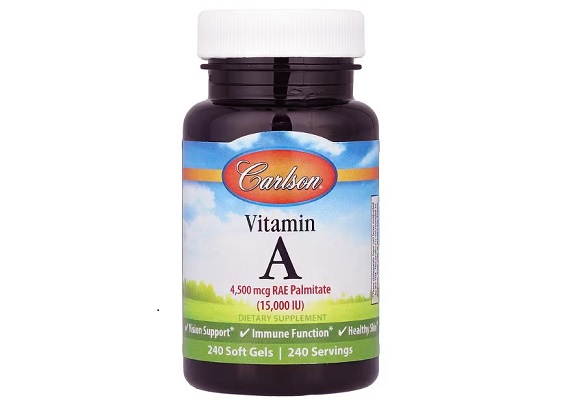Nikhil Prasad Fact checked by:Thailand Medical News Team Aug 26, 2025 6 months, 1 week, 2 hours, 1 minute ago
Medical News: Vitamin A and Its Double-Edged Role
Vitamin A is often praised for its role in vision, immune defense, and healthy cell growth. But new research suggests that the amount we consume could be more critical than many people think. A team of researchers from the Canon Institute for Global Studies in Japan, the International University of Health and Welfare in Japan, the Imagine Institute of INSERM in France, and Duy Tan University in Vietnam have found that both too little and too much vitamin A might increase the risk of developing cancer. This
Medical News report highlights findings that show cancer risk follows a U-shaped curve when it comes to vitamin A intake.
 Too Much or Too Little Vitamin A May Raise Cancer Risk
Details Of the Study
Too Much or Too Little Vitamin A May Raise Cancer Risk
Details Of the Study
The study involved 3758 cancer patients and 2995 hospital patients without cancer, recruited from major hospitals in Hanoi, Vietnam. Researchers assessed participants’ diets using a detailed food frequency questionnaire that captured daily intakes of vitamin A rich foods such as liver, eggs, leafy greens, and colorful fruits. By analyzing the data, the team discovered that a safe range of vitamin A intake lies between 85.3 and 104 micrograms per day. People consuming either far below or far above this range were almost twice as likely to develop cancer compared to those in the safe zone.
The U-Shaped Cancer Risk
Results revealed that individuals with the lowest vitamin A intake had nearly double the cancer risk, while those with the highest intake faced a similar increase. This U-shaped pattern held true across different groups, including men, women, smokers, non-smokers, and drinkers. It was also observed in several cancers such as those of the esophagus, stomach, rectum, and breast.
Interestingly, the link was not as strong for lung and colon cancers. The findings also remained consistent even when researchers adjusted for factors like body weight, smoking, alcohol consumption, and family history of cancer.
Why Both Too Little and Too Much Can Be Harmful
Vitamin A acts as an antioxidant at normal levels, helping to protect cells from damage. But at very high doses, it can trigger oxidative stress, DNA damage, and even support tumor growth under certain conditions. On the other hand, too little vitamin A can weaken the immune system and reduce the body’s ability to repair cell damage, opening the door for cancer to develop. This balance explains why both deficiency and excess are linked to higher risks.
What These Findings Mean
For the general population, the message is clear: moderation is key. The study suggests that aiming for a balanced diet with moderate amounts of vitamin A from natural sources may be safer than relying on excessive supplementation. While vitamin A is vital, more is not always better.
Conclusion
This research is a strong reminder that nutrients can act like medicine or poison depending on how much we consume. The findings
show that there is a “sweet spot” for vitamin A intake, and staying within that range may lower the risk of several cancers. However, more studies are needed to understand exactly how vitamin A interacts with cancer development at the biological level. Until then, people should focus on achieving balanced nutrition rather than chasing high dose supplements. For policymakers and doctors, these findings highlight the importance of setting realistic intake guidelines tailored to local diets and genetic backgrounds.
The study findings were published in the peer reviewed journal: Nutrients.
https://www.mdpi.com/2072-6643/17/17/2744
For the latest COVID-19 News, keep on logging to Thailand
Medical News.
Read Also:
https://www.thailandmedical.news/news/scientists-warn-that-vitamins-and-diet-trends-may-secretly-fuel-cancer-instead-of-fighting-it
https://www.thailandmedical.news/news/vitamin-b12-a-double-edged-sword-for-mental-health
https://www.thailandmedical.news/news/covid-19-news-the-impact-of-vitamin-a-levels-on-covid-19-prognosis-insights-from-brazilian-researchers
